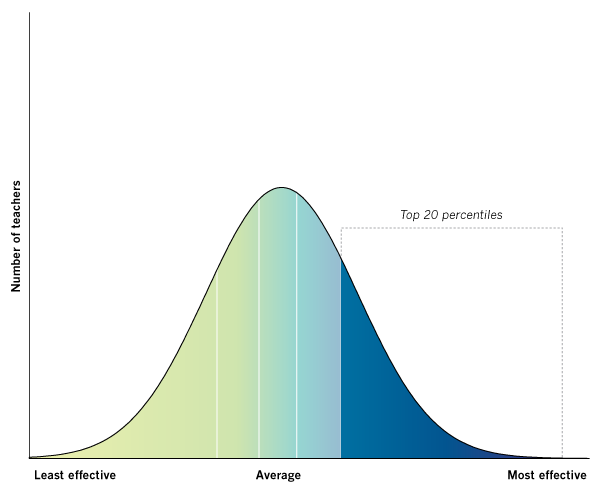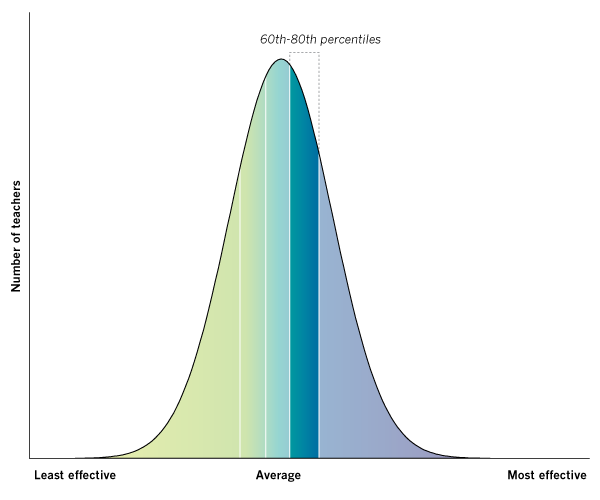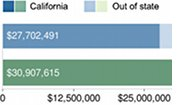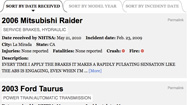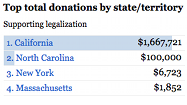Qeona Patrice Hamilton
A 5th grade teacher at Birdielee V. Bright Elementary in 2009
These graphs show a teacher's "value-added" rating based on his or her students' progress on the California Standards Tests in math and English. The Times’ analysis used all valid student scores available for this teacher from the 2002-03 through 2008-09 academic years. The value-added scores reflect a teacher's effectiveness at raising standardized test scores and, as such, capture only one aspect of a teacher's work.
Compared with other Los Angeles Unified teachers on the value-added measure of test score improvement, Hamilton ranked:
- Most effective overall.
- Most effective in math. Students of teachers in this category, on average, gained about 11 percentile points on the California Standards Test compared with other students at their grade level.
- More effective than average in English. Students of teachers in this category, on average, gained about 2 percentile points on the California Standards Test compared with other students at their grade level.
Hamilton's LAUSD teaching history
2002-03 through 2008-09 academic years
- Birdielee V. Bright Elementary, 2009 - 2003
Qeona Hamilton's Response:

It should be an honor to see that I am one of the most effective teachers at my school, but for me, it is not. I am actually shocked at my ranking. Honestly, I expected to be somewhere between average and more effective. Many of my students have made significant growth in English and Math, but others have not. Each year, my colleagues and I review our students' CST data and use that information to plan instruction for the upcoming school year. I have witnessed both gains and losses in student achievement from year to year, but it seems that the value-added system does not reflect those results accurately. That alone makes me question the validity and effectiveness of this approach to ranking teachers. Many of the teachers from my school who have received a less effective ranking are actually effective, dedicated, and very hard working. Do the value-added scores take into consideration that California State Standards change from grade level to grade level, some more significant than others? This system projects that a student should achieve a certain score or meet a certain level of growth. But, that does not mean that the students will meet that projection or that their scores are a reflection solely on the teacher. I can just imagine how embarrassed I'd feel with a lower ranking. Having said that, I feel hurt and betrayed that LAUSD has released this information. Teachers deserve so much more appreciation for educating our children. We put in numerous unpaid hours of preparation and planning for instruction for our students. We have even agreed to take a pay cut to improve the budget and save our colleagues' jobs. My question now is, why have we, teachers, become targets?
![]() The Times gave LAUSD elementary school teachers rated in this database the opportunity to preview their value-added evaluations and publicly respond. Some issues raised by teachers may be addressed in the FAQ. Teachers who have not commented may do so by contacting The Times.
The Times gave LAUSD elementary school teachers rated in this database the opportunity to preview their value-added evaluations and publicly respond. Some issues raised by teachers may be addressed in the FAQ. Teachers who have not commented may do so by contacting The Times.
|
|
 Delicious
Delicious
|
 Digg
Digg
|
 Facebook
Facebook
|
 Twitter
Twitter
|



